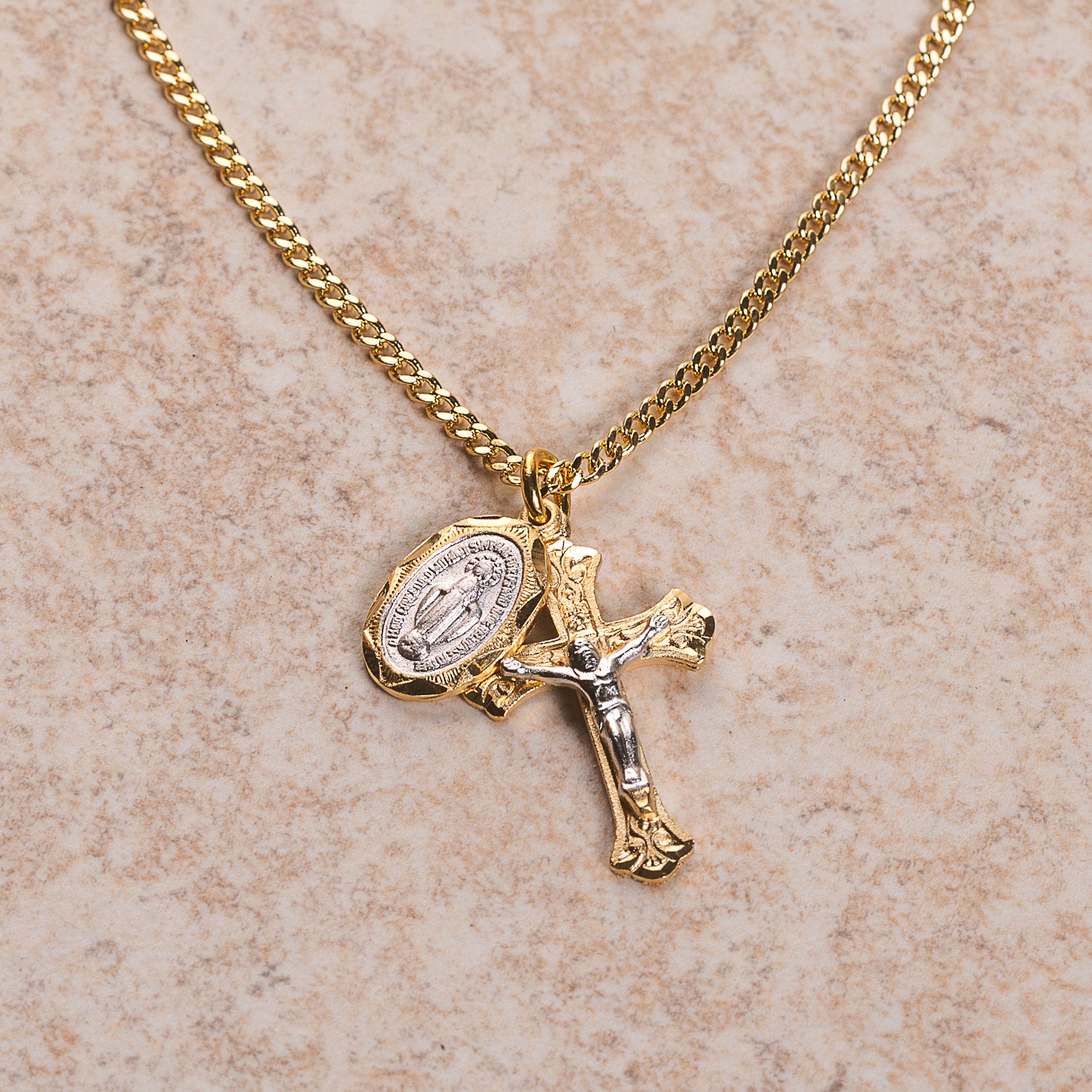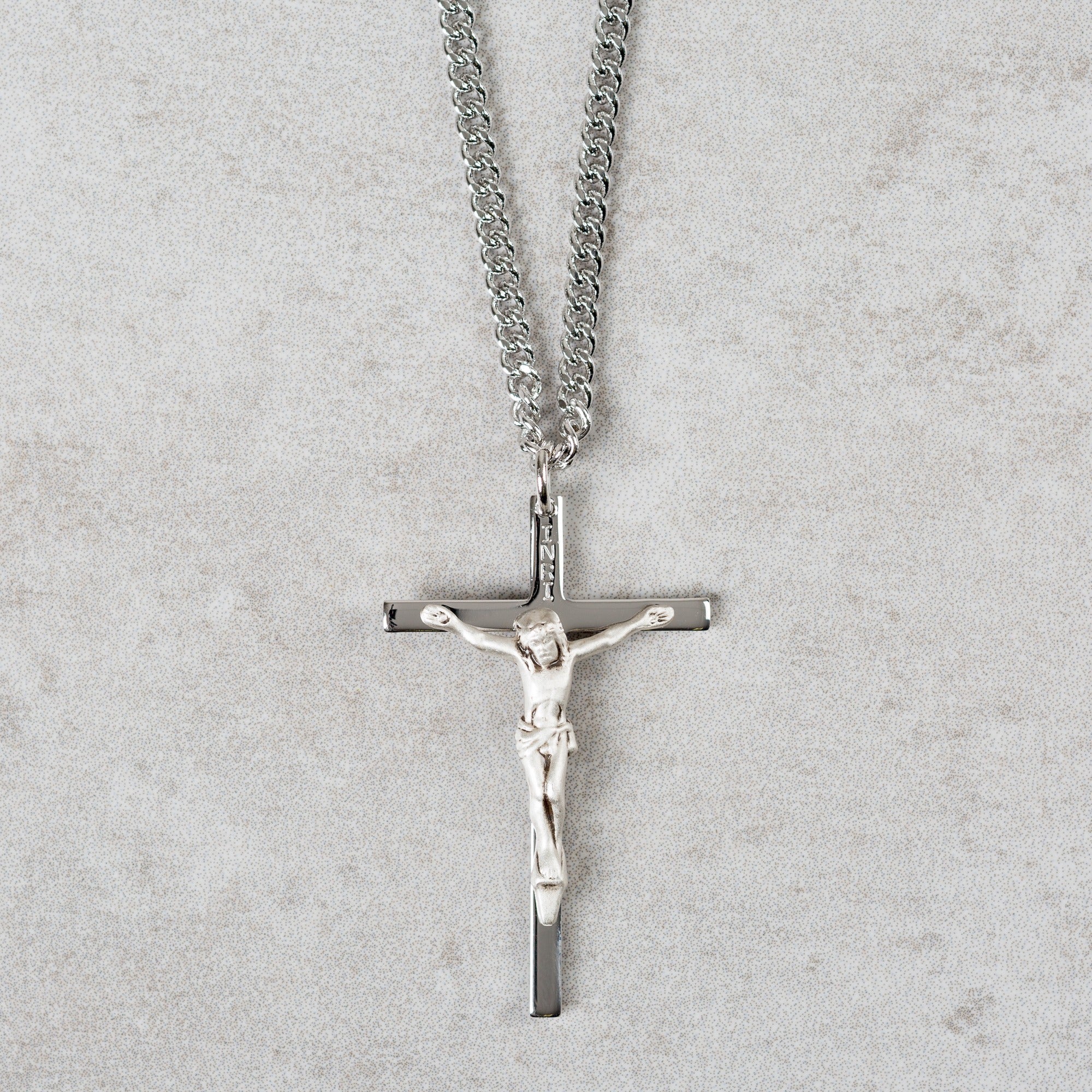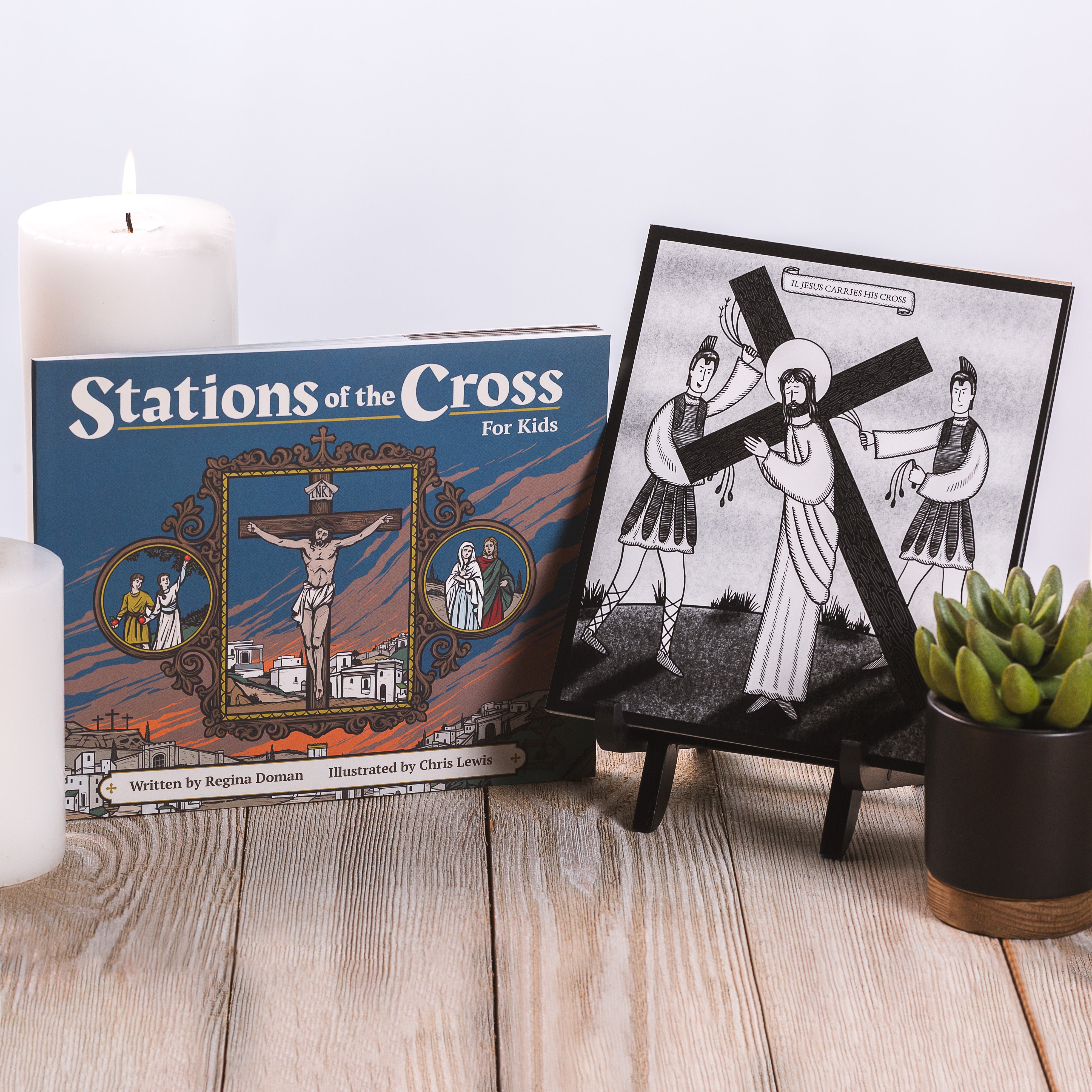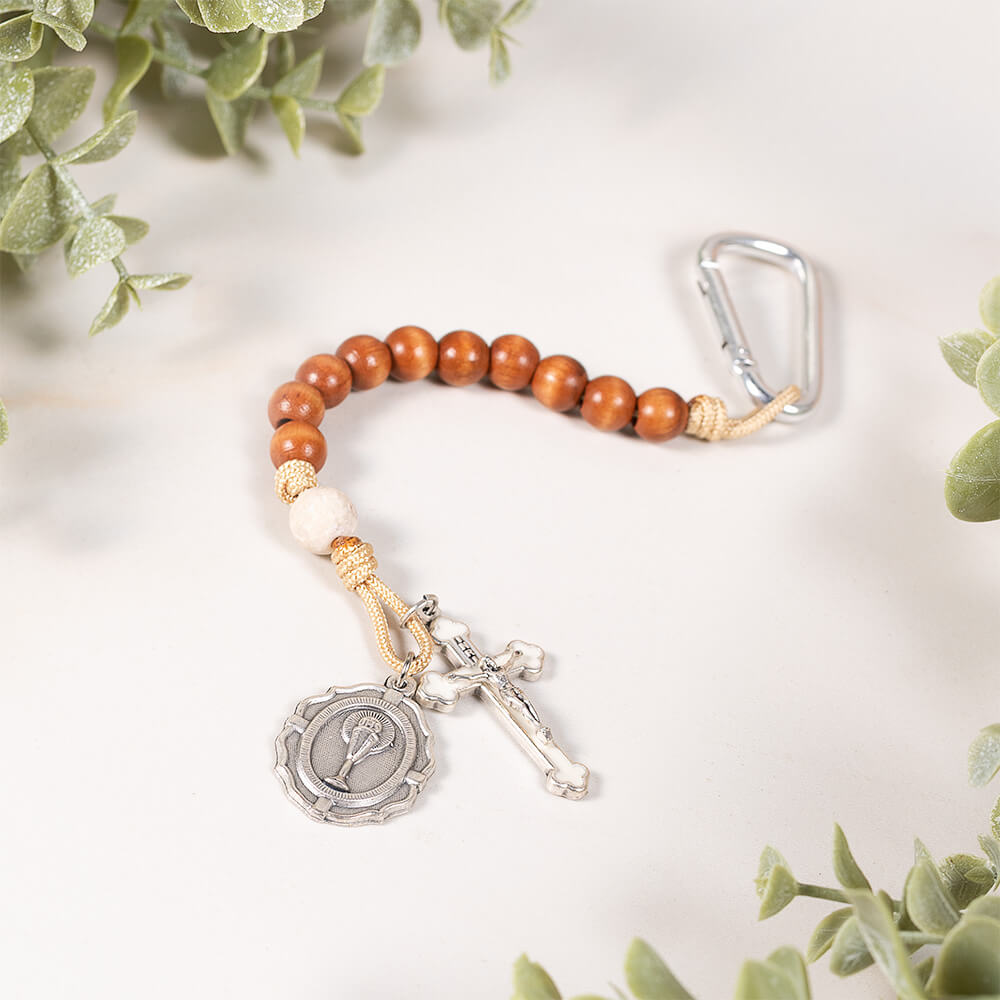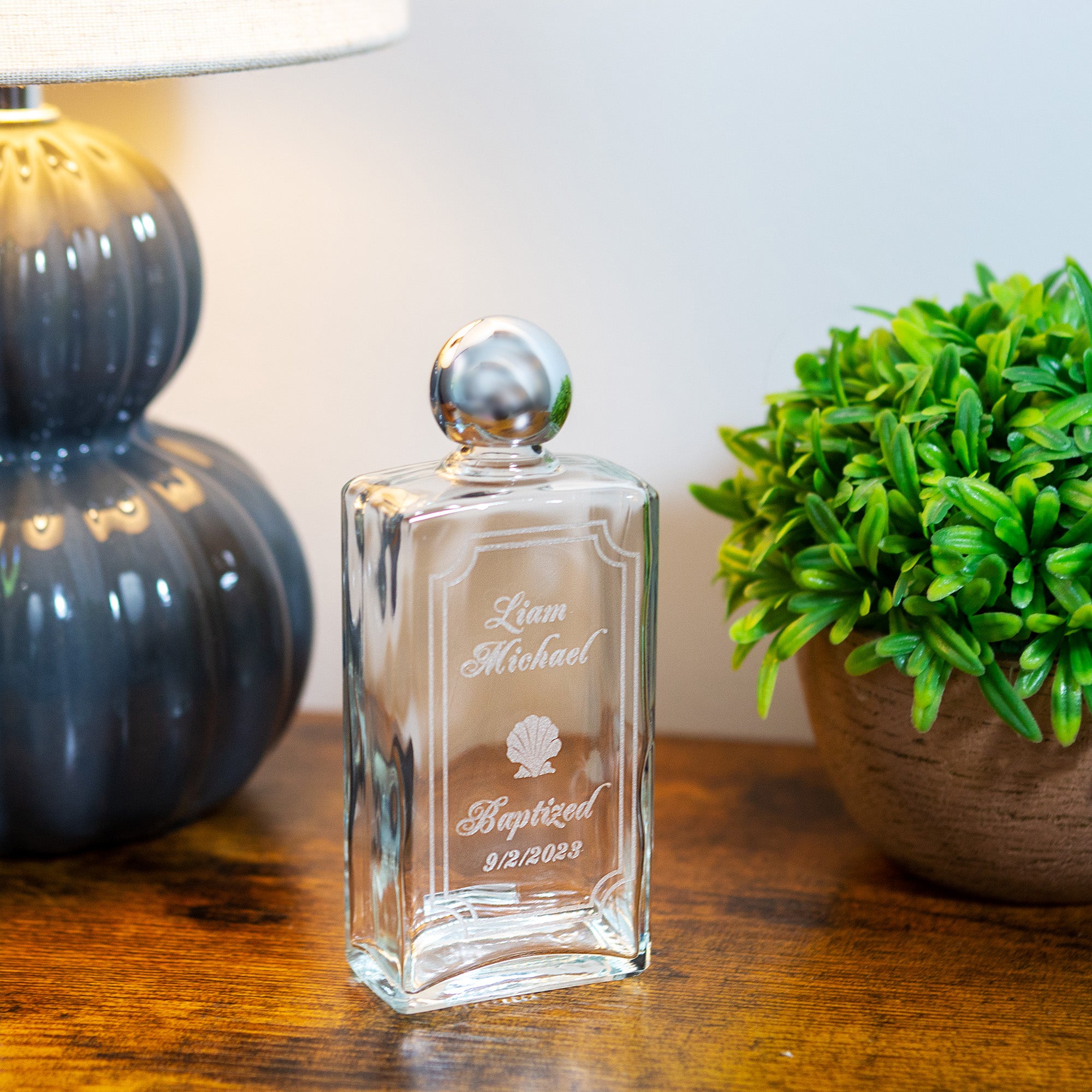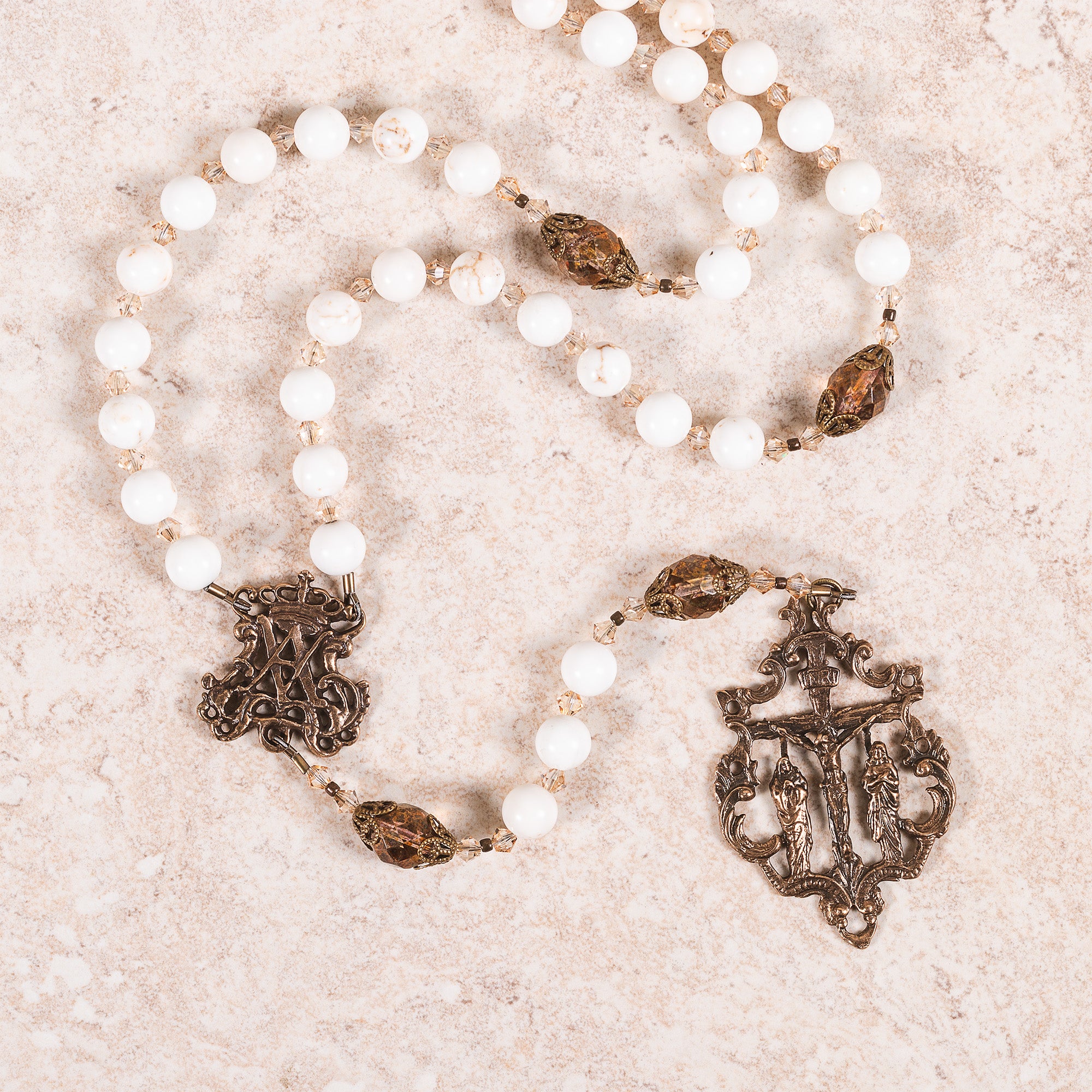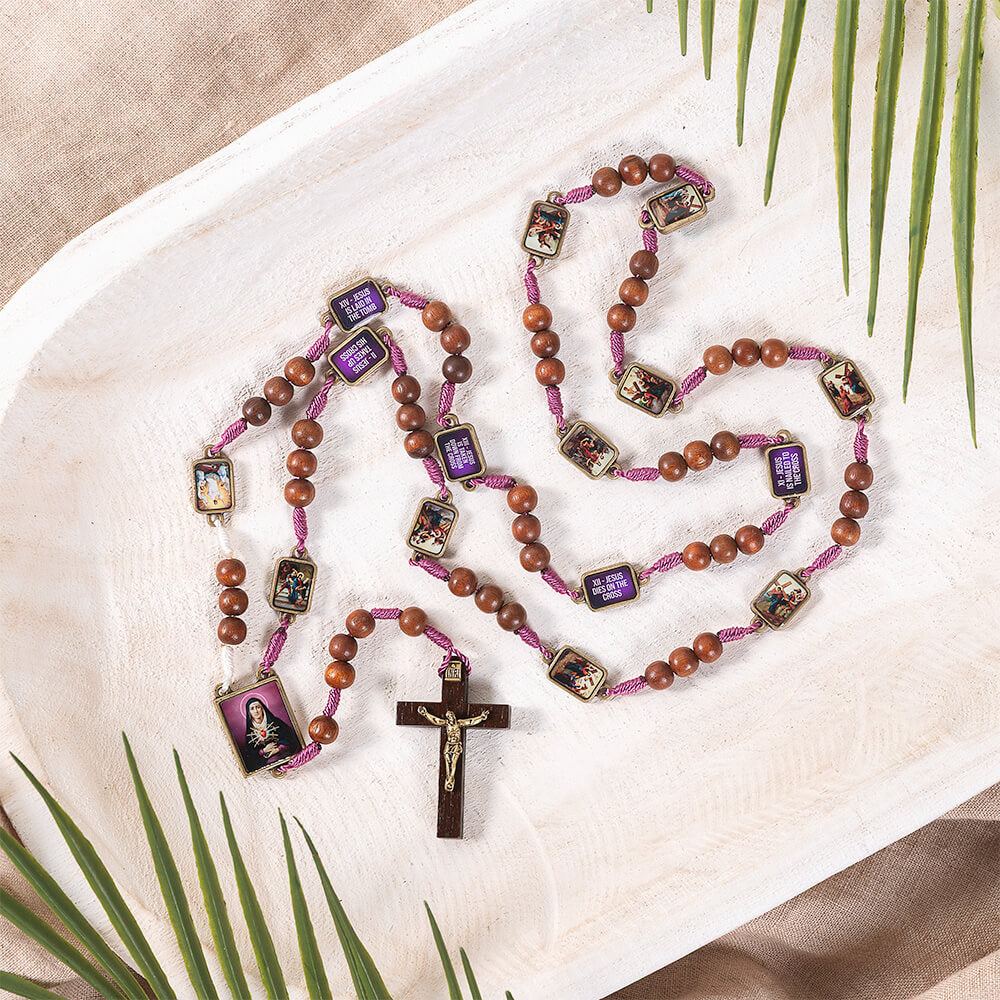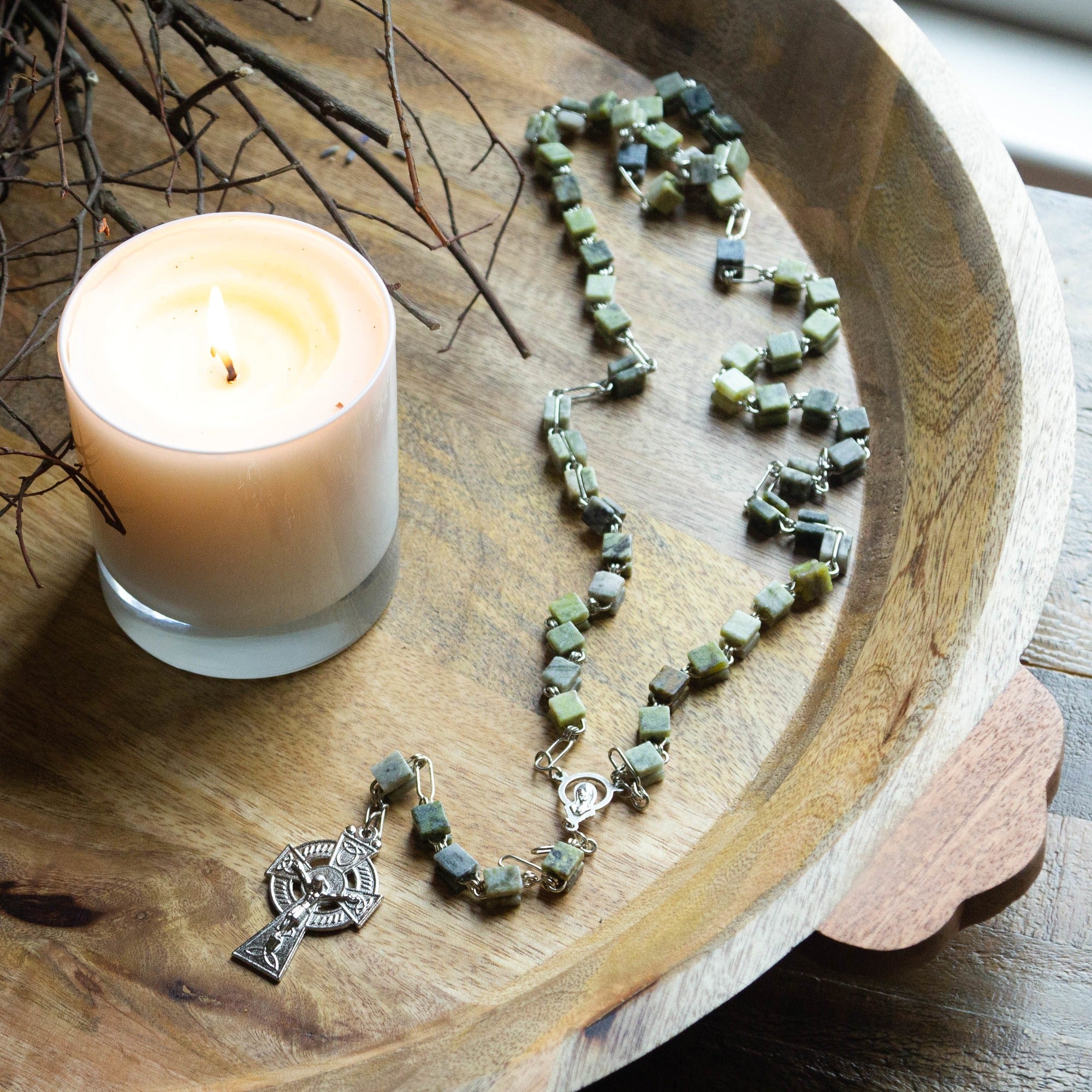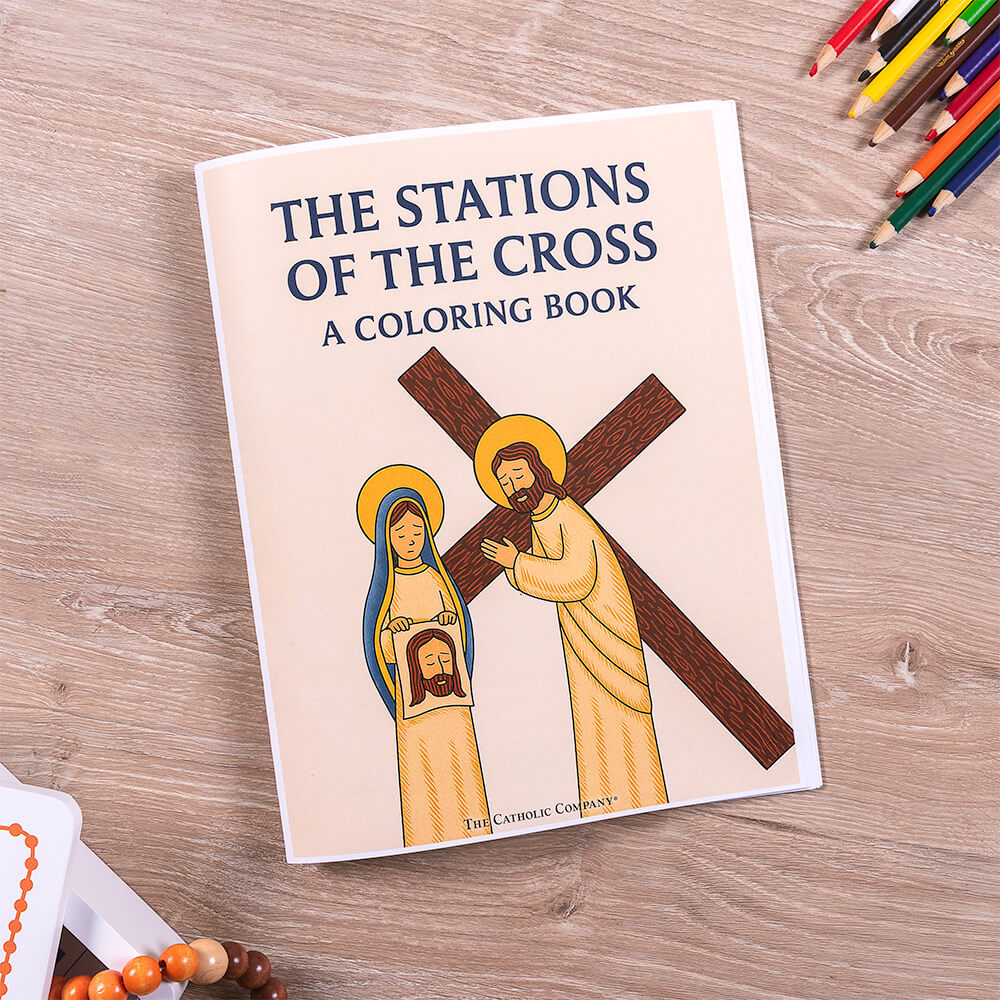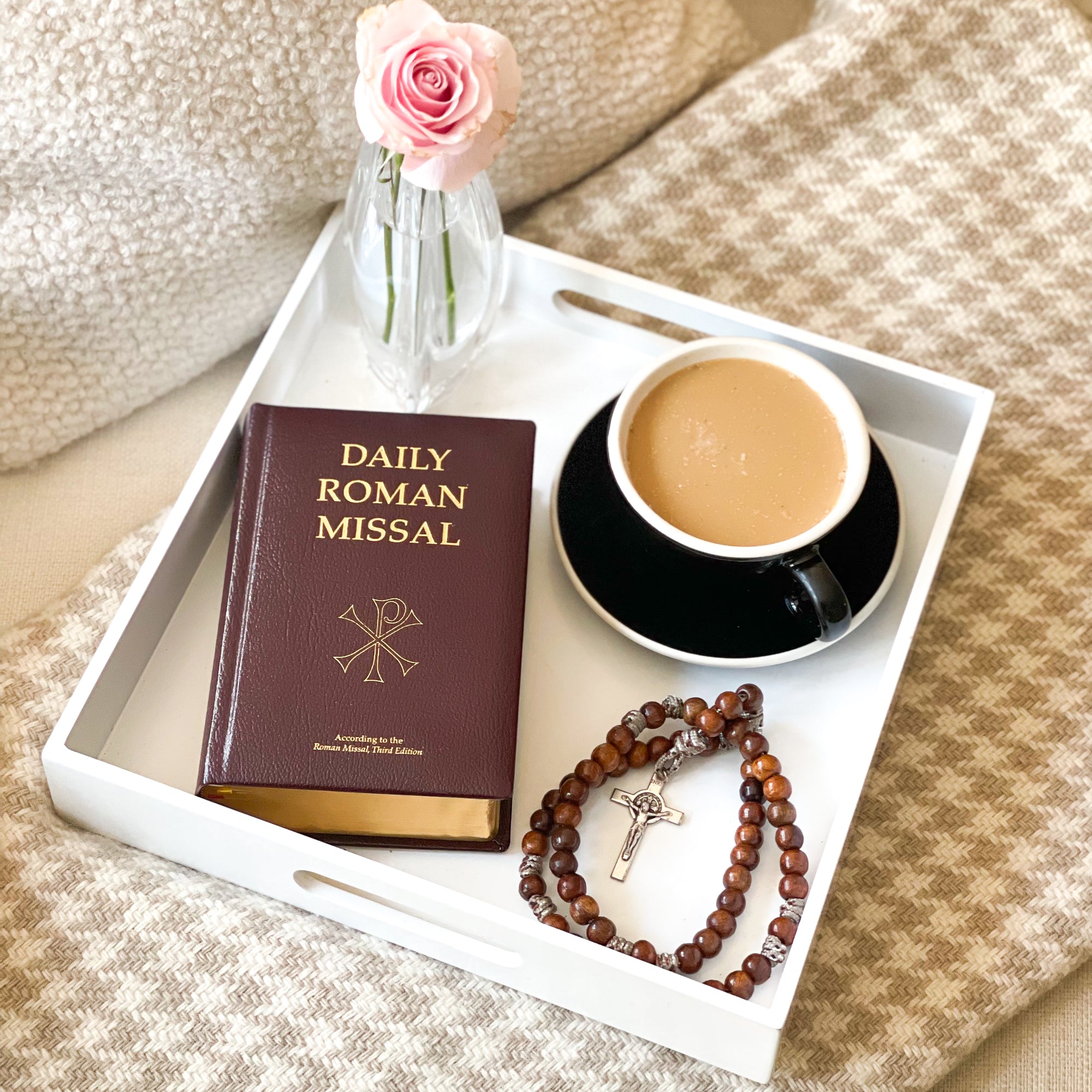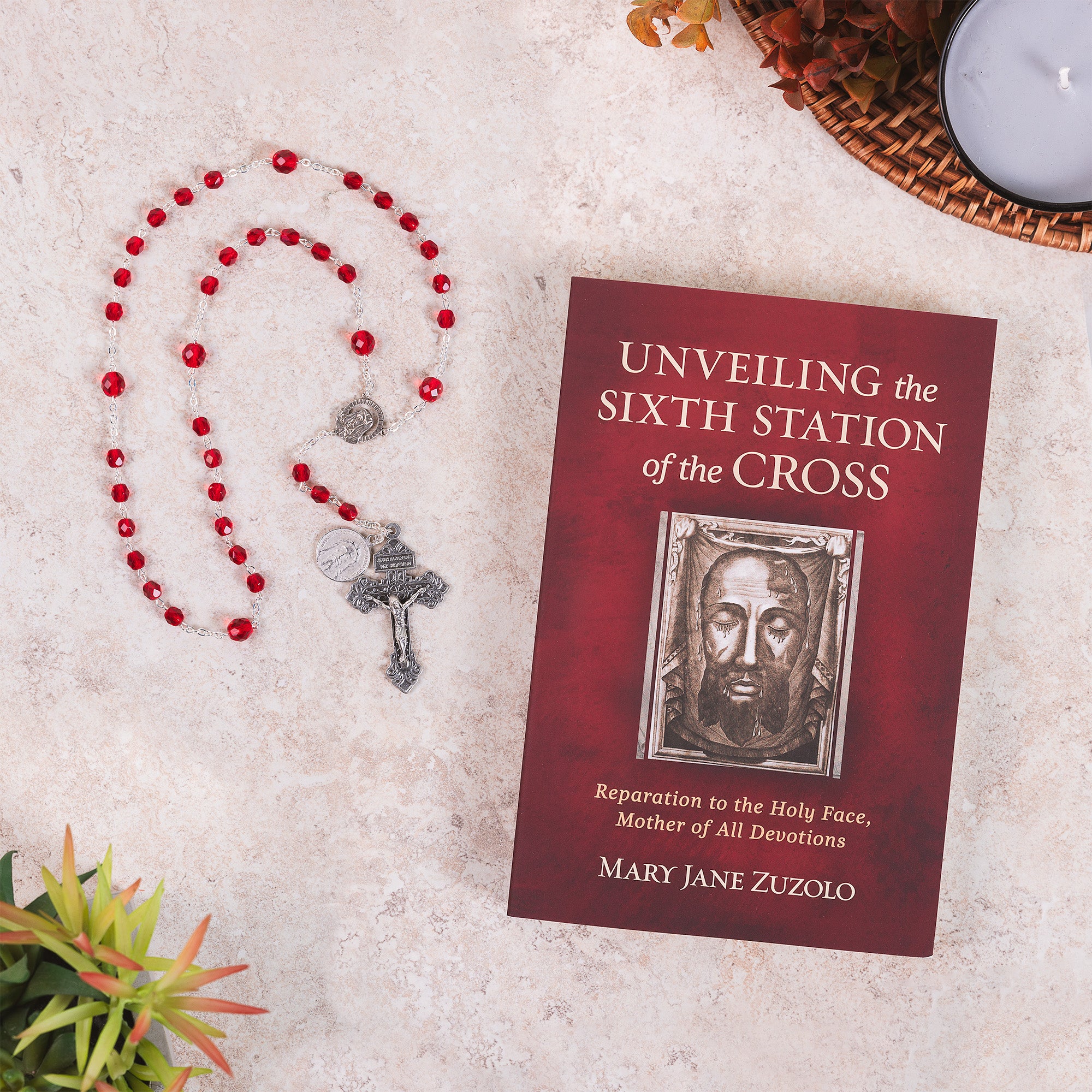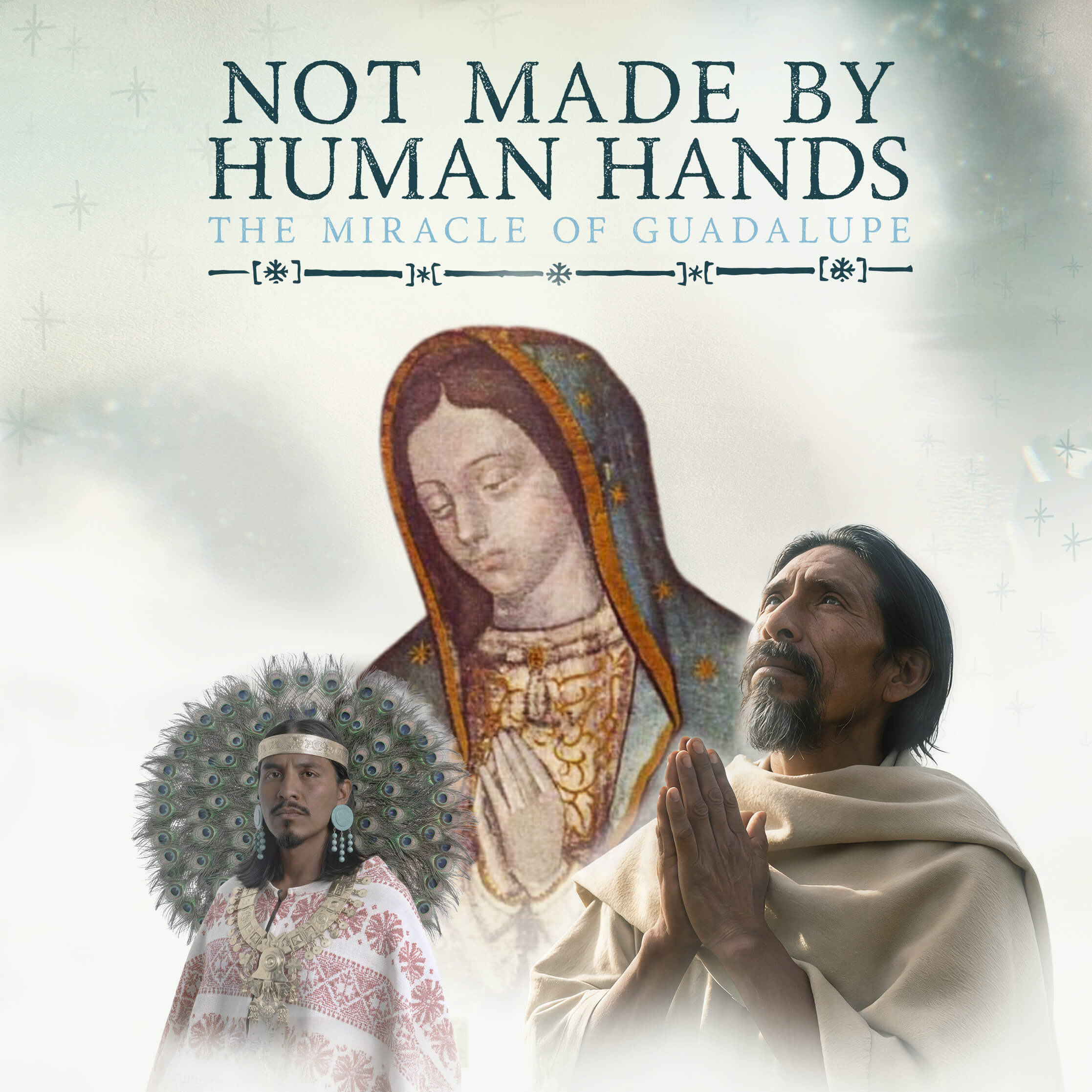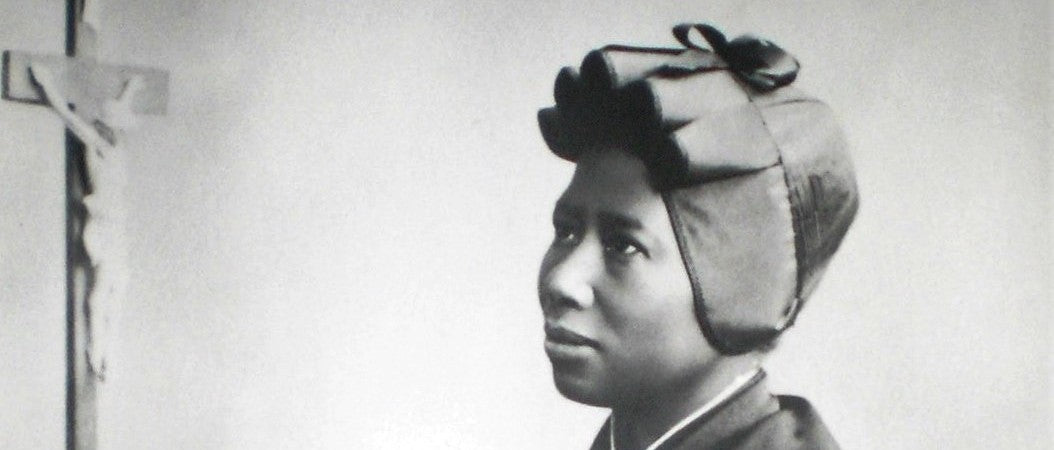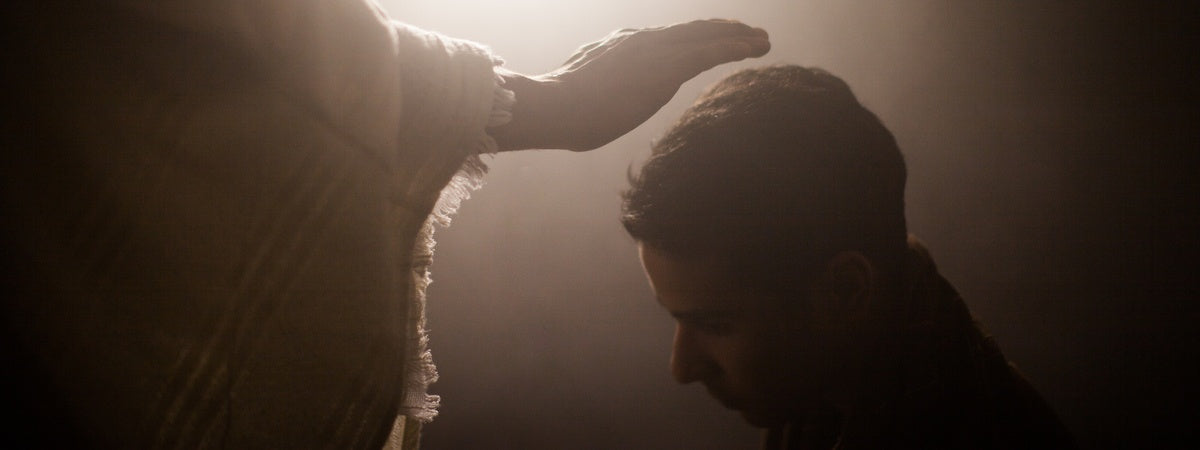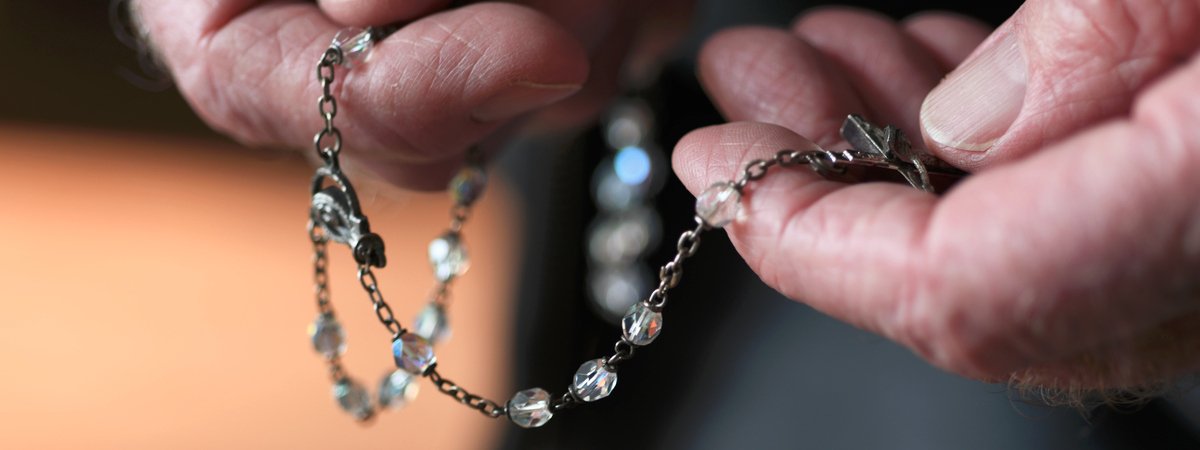As she lay dying in 1947, St. Josephine Bakhita moaned, “Loosen the chains...They are so heavy!”
Indeed, her life had been lived in the miserable bondage of slavery until she came to know God, her true Master.
Bakhita was born in Africa, in the Darfur region of Sudan, in 1869. Kidnappers tore her away from her prosperous family and happy childhood. According to her own account she was enslaved at the tender age of nine.

Traumatized by the terror of her experience, she could not even remember her own name. Ironically, her Arab captors gave her the name Bakhita, which means “fortunate.” In reality, she endured inconceivable and barbaric tortures. She was sold and resold as the property of others and forced to convert to Islam. She was beaten daily, and branded more than 100 times. One of her owners—a woman, who threatened her with a whip—had someone cut her 114 times with a razor to “decorate” her with intricate designs. She was forced to lie still as they rubbed salt into her wounds to prevent healing and ensure scarring.
[[12178]]
These were just some of the physical tortures that the gentle Bakhita endured at the hands of her earthly masters.
After fourteen years, she was finally purchased by the Italian Consul in Sudan, who treated her kindly and did not beat her. He gave her to a family in Italy, where she served as nanny to their little girl.
Finding God
When the child she nannied went to school with the Connosian Sisters in Venice, Bakhita accompanied her. There she encountered the reality of God for the first time. She had always known Him in her heart, she said, but she never understood who He was for her until that moment. She affectionately called Him “The Master,” and He became the only master of her heart from that time on.

Seeing the sun, the moon and the stars, I asked myself, Who could be the Master of these beautiful things? And I felt a great desire to see Him, to know Him, and to pay Him homage.
—St. Josephine Bakhita
Despite a life marked by brutality and suffering, Bakhita was now able to recognize the glory of God in everything. She was baptized and confirmed in 1890, taking the name Josephine.
Broken Chains
When it was time for her owners to return to Africa, Josephine did not want to go. In an emotional and highly-charged court case that drew the attention of many in Venice, the Cannosian Sisters and the Bishop of Venice intervened on Bakhita’s behalf.
The judge concluded that since slavery was illegal in Italy, St. Josephine Bakhita had been free since her arrival there in 1885. Her chains were not only loosened, but broken. She was freed to live a life in which she could exercise her own will for the first time in twenty years.
[[sterling-silver-st-josephine-bakhita-petite-pendant]]
She chose to enter religious life with the Cannosian Sisters, and assisted her Community by cooking, sewing, and serving as the doorkeeper. The school children grew to love her, and she would often stand at the door of the Community to welcome and bless them.
“Be good, love the Lord, and pray for those who do not know Him. What a great grace it is to know God!” she would say with a smile and a heart overflowing with joy.
She helped prepare missionaries to go to Africa. Because of her own history and experiences, she desired that all people should come to know Christ through the Church and be saved.
“Oh, Lord, if I could fly to my people, and tell them of your goodness at the top of my voice, oh, how many souls would be won!” she exclaimed. She longed for all to experience the trust and peace she finally experienced in God’s care.
Madre Moreta
Her serenity in the face of cruelty and adversity—and her ability to forgive her captors—drew people to Madre Moreta, or “Dark Mother,” as she was affectionately known. Her Sisters esteemed her for her sweet nature which they said never faltered. They loved her innate goodness, gentleness, and meekness.

Bakhita lived her life in awe of God, amazed that she was the object of His love. This sense of wonder inspired and attracted others to a deep, joyful, simple faith.
If I was to meet those slave raiders that abducted me and those who tortured me, I'd kneel down to them to kiss their hands, because, if it had not been for them, I would not have become a Christian and religious woman. In God's will, there is great peace.
—St. Josephine Bakhita
In her final years, St. Josephine suffered intensely. She was confined to a wheelchair and then to her bed.
I am indifferent to living or dying, for I am always in His possession. When I am with Him I am perfectly all right. He is the Master; I am His little creature.
—St. Josephine Bakhita
During these difficult years, the memories of her life in slavery returned to her as she lay in her bed, leading her to cry out for release from her chains.
[[junior-saints-litany-of-saints-tote]]
At last, on February 8, 1947, Our Blessed Mother granted her request. She came to free from earthly bonds the humble saint, so that she could join her true Master in Heaven. Bakhita’s dying words were “Our Lady! Our Lady!”
On October 1, 2000, Pope St. John Paul II canonized St. Josephine Bakhita. Her feast day, February 8, is the Catholic Church’s International Day of Prayer and Reflection on Human Trafficking.
St. Bakhita is the patron saint of the people of Sudan and victims of slavery and human trafficking. She is a powerful intercessor for the persecuted and oppressed.
The Beauty of Bakhita
St. Josephine Bakhita has so much to teach us about hope, determination, forgiveness, and serenity in the face of adversity. She stands as a shining reminder that the path to holiness is one of continuous interior conversion. Holiness is not a chosen vocation for the few. It is the constant exercise of the will to love generously—day by day, moment by moment, no matter our circumstances.
Most of us will live freely as followers of Christ throughout our lives. On the International Day of Prayer and Reflection, let us seek the intercession of St. Josephine Bakhita on behalf of all victims of human trafficking, all persecuted Christians, and our oppressed brothers and sisters throughout the world. Let us resolve to pray earnestly for an end to these terrible atrocities and for the protection, rescue, and healing of all victims.

A Prayer to St. Josephine Bakhita on Behalf of Victims of Human Trafficking and Slavery, by the United States Conference of Catholic Bishops
St. Josephine Bakhita, you were sold into slavery as a child and endured untold hardship and suffering. Once liberated from your physical enslavement, you found true redemption in your encounter with Christ and his Church.
O St. Bakhita, assist all those who are trapped in a state of slavery; Intercede with God on their behalf so that they will be released from their chains of captivity. Those whom man enslaves, let God set free.
Provide comfort to survivors of slavery and let them look to you as an example of hope and faith. Help all survivors find healing from their wounds. We ask your prayers and intercession for those enslaved among us.
Amen.
A Prayer for the Intercession of St. Josephine Bakhita
Dear Lord, Thank you for the holy example of St. Josephine Bakhita. Help me, like her, to recognize with gratitude all the beautiful things in my life, especially when I am suffering in pain, being mistreated, or feeling trapped in a situation from which I cannot break free.
Through her intercession, please help all victims of slavery, human trafficking and oppression of any kind. Come to the aid of all innocent people suffering in our world. Help us to create a world without brutality, where every person is recognized for their dignity as Your child, and able to exercise their free will.
Amen.
St. Josephine Bakhita, pray for us!
Further Reading: St. Martin de Porres: First Black Saint of the Americas
What inspires you most about this gentle saint?
Have you sought the intercession of St. Josephine Bakhita and received her help in difficult circumstances?
What can you do personally to make sure that the dignity of each person that you encounter in your life—family member, friend, or stranger—is honored and respected?

